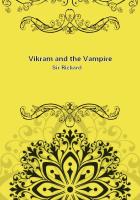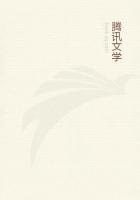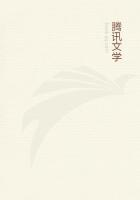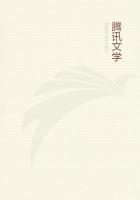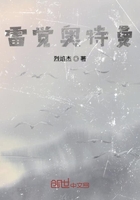I don't want to seem patronizing, but I suspect that your mind is susceptible of a great development.Give it the best company, trust it, let it go!"She looked away from him for some moments, down the gorgeous vista of the great church."But what you say," she said at last, "means change!""Change for the better!" cried Rowland.
"How can one tell? As one stands, one knows the worst.
It seems to me very frightful to develop," she added, with her complete smile.
"One is in for it in one way or another, and one might as well do it with a good grace as with a bad! Since one can't escape life, it is better to take it by the hand.""Is this what you call life?" she asked.
"What do you mean by 'this'?"
"Saint Peter's--all this splendor, all Rome--pictures, ruins, statues, beggars, monks.""It is not all of it, but it is a large part of it.
All these things are impregnated with life; they are the fruits of an old and complex civilization.""An old and complex civilization: I am afraid I don't like that.""Don't conclude on that point just yet.Wait till you have tested it.
While you wait, you will see an immense number of very beautiful things--things that you are made to understand.
They won't leave you as they found you; then you can judge.
Don't tell me I know nothing about your understanding.
I have a right to assume it."
Miss Garland gazed awhile aloft in the dome."I am not sure I understand that," she said.
"I hope, at least, that at a cursory glance it pleases you,"said Rowland."You need n't be afraid to tell the truth.
What strikes some people is that it is so remarkably small.""Oh, it's large enough; it's very wonderful.There are things in Rome, then," she added in a moment, turning and looking at him, "that are very, very beautiful?""Lots of them."
"Some of the most beautiful things in the world?""Unquestionably."
"What are they? which things have most beauty?""That is according to taste.I should say the statues.""How long will it take to see them all? to know, at least, something about them?""You can see them all, as far as mere seeing goes, in a fortnight.
But to know them is a thing for one's leisure.
The more time you spend among them, the more you care for them."After a moment's hesitation he went on: "Why should you grudge time?
It 's all in your way, since you are to be an artist's wife.""I have thought of that," she said."It may be that I shall always live here, among the most beautiful things in the world!""Very possibly! I should like to see you ten years hence.""I dare say I shall seem greatly altered.But I am sure of one thing.""Of what?"
"That for the most part I shall be quite the same.
I ask nothing better than to believe the fine things you say about my understanding, but even if they are true, it won't matter.
I shall be what I was made, what I am now--a young woman from the country! The fruit of a civilization not old and complex, but new and ******.""I am delighted to hear it: that 's an excellent foundation.""Perhaps, if you show me anything more, you will not always think so kindly of it.Therefore I warn you.""I am not frightened.I should like vastly to say something to you:
Be what you are, be what you choose; but do, sometimes, as I tell you."If Rowland was not frightened, neither, perhaps, was Miss Garland;but she seemed at least slightly disturbed.She proposed that they should join their companions.
Mrs.Hudson spoke under her breath; she could not be accused of the want of reverence sometimes attributed to Protestants in the great Catholic temples.
"Mary, dear," she whispered, "suppose we had to kiss that dreadful brass toe.
If I could only have kept our door-knocker, at Northampton, as bright as that! I think it's so heathenish; but Roderick says he thinks it 's sublime."Roderick had evidently grown a trifle perverse."It 's sublimer than anything that your religion asks you to do!" he exclaimed.
"Surely our religion sometimes gives us very difficult duties,"said Miss Garland.
"The duty of sitting in a whitewashed meeting-house and listening to a nasal Puritan! I admit that 's difficult.
But it 's not sublime.I am speaking of ceremonies, of forms.
It is in my line, you know, to make much of forms.
I think this is a very beautiful one.Could n't you do it?"he demanded, looking at his cousin.
She looked back at him intently and then shook her head.
"I think not!"
"Why not?"
"I don't know; I could n't!"
During this little discussion our four friends were standing near the venerable image of Saint Peter, and a squalid, savage-looking peasant, a tattered ruffian of the most orthodox Italian aspect, had been performing his devotions before it.
He turned away, crossing himself, and Mrs.Hudson gave a little shudder of horror.
"After that," she murmured, "I suppose he thinks he is as good as any one!
And here is another.Oh, what a beautiful person!"A young lady had approached the sacred effigy, after having wandered away from a group of companions.She kissed the brazen toe, touched it with her forehead, and turned round, facing our friends.
Rowland then recognized Christina Light.He was stupefied:
had she suddenly embraced the Catholic faith? It was but a few weeks before that she had treated him to a passionate profession of indifference.Had she entered the church to put herself en regle with what was expected of a Princess Casamassima?
While Rowland was mentally asking these questions she was approaching him and his friends, on her way to the great altar.
At first she did not perceive them.
Mary Garland had been gazing at her."You told me," she said gently, to Rowland, "that Rome contained some of the most beautiful things in the world.This surely is one of them!"At this moment Christina's eye met Rowland's and before giving him any sign of recognition she glanced rapidly at his companions.She saw Roderick, but she gave him no bow;she looked at Mrs.Hudson, she looked at Mary Garland.
At Mary Garland she looked fixedly, piercingly, from head to foot, as the slow pace at which she was advancing made possible.

